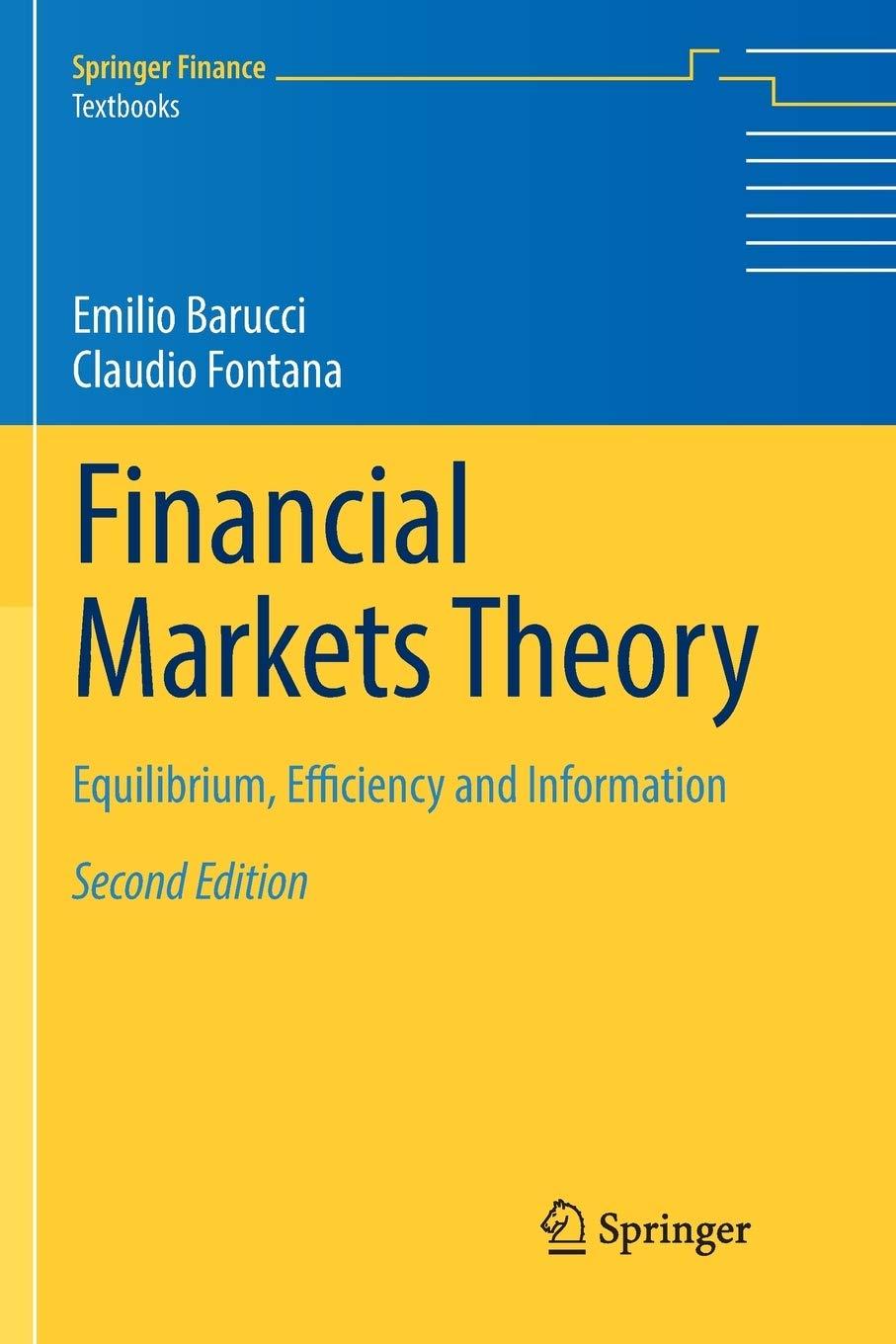Suppose that there are no arbitrage opportunities and let (Q(cdot)) be a pricing functional. Let (hat{ell} in
Question:
Suppose that there are no arbitrage opportunities and let \(Q(\cdot)\) be a pricing functional. Let \(\hat{\ell} \in I(D)\) denote the unique vector such that \(Q(c)=\mathbb{E}[\hat{\ell} c]\), for all \(c \in I(D)\), as in Lemma 5.5. Let \(z^{\ell} \in \mathbb{R}^{N}\) be the portfolio such that \(\hat{\ell}=D z^{\ell}\) and denote by \(\tilde{r}^{\ell}\) its return, i.e., \(\tilde{r}^{\ell}=\hat{\ell} / V(\hat{\ell})\). Prove the following properties:
(i) for any arbitrary portfolio \(z \in \mathbb{R}^{N}\) with return \(\tilde{r}^{z}\), it holds that \(\mathbb{E}\left[\tilde{r}^{2} \tilde{r}^{\ell}\right]=\) \(\mathbb{E}\left[\left(\tilde{r}^{\ell}\right)^{2}\right]\).
(ii) the portfolio \(z^{\ell}\) belongs to the mean-variance portfolio frontier.
Step by Step Answer:

Financial Markets Theory Equilibrium Efficiency And Information
ISBN: 9781447174042
2nd Edition
Authors: Emilio Barucci, Claudio Fontana





